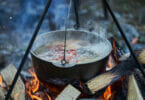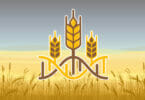AUTHOR’S NOTE: This list and suggestions are by no means comprehensive or definitive. Rather, it is to get you thinking and be aware of items you should have on hand in case of emergency, power outage, grid-down, etc.
The following is from “The Emergency Survival Manual” by Joseph Pred:
Grab Your Go Bag
A go bag is a collection of items that you would need to survive if you had to flee your home with no guarantee of shelter, food, or water during an emergency. Think of it as your insurance policy. There may not be one universally agreed-upon set of equipment but, with a good core set of items, you can put together a go bag suited for a wide variety of situations.
It’s best to use a backpack so that you can easily carry your gear. Fill it up with the minimum following things, with items sealed in zip-top bags to keep them organized and prevent them getting wet.
- Shelter items like a small tent and sleeping bag (if you want to go ultraminimalist, pack a tarp and a space blanket)
- Drinking water and purification equipment
- High-calorie, no-cook foods such as protein bars, peanut butter, trail mix, etc.
- First-aid, sanitation, and hygiene supplies
- Several fire-starting options
- A small pot for boiling water or cooking
- Basic tools such as a knife, duct tape, and paracord
- Extra clothes appropriate for all seasons
- Flashlight with extra batteries
- Cash and a spare debit card
- A thumb drive with a backup of important documents: banks info, insurance documents, wills, and personal items such as family photos or videos
Stash your main go bag safe and ready to go in a secure location, with smaller versions in your car and office. It’s a good idea for you to have everyday carry (EDC) items – survival essentials that you can carry in your pocket or purse.
Home Go Bag:
- Emergency rations (MREs, food bars, etc)
- Bottled water
- Tent & tarp
- Sleeping bag
- Space blanket
- Change of rugged clothes
- Flashlight & extra batteries
- Pocket knife
- Can opener
- Heavy cord
- Battery or crank-operated weather AM/FM radio
- First aid kit
- Sanitation kit
- Medications & extra eyeglasses, hearing aid batteries, etc.
- Whistle
- Change of shoes & socks
- Duct tape
- Razor blades
- Water filter
- Water purification tablets
- Solar charger
- Battery pack
- Crow bar
- Utility shutoff tool
- Fishing kit
- Folding shovel
- Reflective traffic vest
- Lantern
- Work gloves
- Lighter of fire-starting kit
Assemble An EDC
Everyday carry (EDC) refers to a small collection of tools, equipment, and supplies that are with you at all times to handle a variety of everyday and emergency situations. The list below represents a wide range of things you might carry. Tailor it to what’s reasonable for your pocket, purse, briefcase, or small bag. Just remember, the more the better (within reason). You never know what item you might really need in a crisis.
Tactical Flashlight: Useful for signaling and utility along with personal protection, a bright, durable, self-defense-style flashlight is an essential part of your EDC gear.
Multitool: These come in several sizes, often with a knife. So, if you feel that carrying a separate knife is excessive, you still have a cutting tool.
Pocketknife: Even in you prefer not to carry a knife for self-defense, there are a multitude of other reasons to have one, such as cooking, first aid, rescue, carving, and gear repair adjustments.
Whistle: Whistles can be used to call help, warn anyone in earshot, and communicate with members of your group. Most are small and can be attached to a key ring.
Battery Pack: Compact external batteries are small, usually a little longer than a tube of lipstick, and carry enough power to give your phone a full charge. Add a short charging cable and you’re set.
Marker: A permanent marker is an everyday object that you probably don’t think about until you need one. These are water resistant and able to write on just about any surface. Find one with a clip that attaches easily to a key ring.
Paracord: Wristbands are one way to store and carry an emergency length of cord, but there are many others, such as a key chain fob or even shoelaces.
Sunglasses: Even when the weather is cloudy, consider carrying a decent pair of sunglasses with you. They can be worn as improvised safety glasses, and are useful when you need to rest but it’s too bright to do so.
Lighter: Even if you’re not a smoker, a handy source of fire of useful in disaster situations when utilities are no longer functional, or for wilderness survival.
Bandana: This simple square of fabric can be employed as a tourniquet, a sling, a dust mask, and so much more.
Storage: Consider placing your EDC kit into a small sturdy container for easy storage and organization. Also, include a compact stuff bag or folding pouch to add carrying capacity when it’s needed; they can also be used for groceries and other everyday uses.
Key Ring Stash: These small metal containers are perfect for storing extra emergency cash or a few doses of critical medication.
Mini Flashlight: A tiny backup light is important in case your primary flashlight dies, or if you just need a little light. These utility lights can run up to 15 hours.
AUTHOR COMMENTARY
The simple believeth every word: but the prudent man looketh well to his going.
Proverbs 14:15
As I stated in the offset of this, these lists are by no means definitive, perfect, and any other adjective you wish to place on it. There are some things you can erase, and some things you could potentially add. For example, be weary of the whole MRE craze, because a lot of that stuff is severely toxic. Learn real foods that can be stored, or found in God’s creation; or find dehydrated powders from real foods that still have the nutrients in them. These lists also had stuff about smart phones, and I just took them off, because we need to learn to live without them stupid things. Furthermore, the more you can learn and return to the old paths, the better you will be.
Thus saith the LORD, Stand ye in the ways, and see, and ask for the old paths, where is the good way, and walk therein, and ye shall find rest for your souls. But they said, We will not walk therein.
Jeremiah 6:16
But, I am mentioning these things to make sure you are thinking about the current environment of society and of the world, taking into account much of what I have reported on. Be diligent and continually do your own homework. I am just one man with limited time. If you want better “success” moving forward, then you need to do the legwork.
[7] Who goeth a warfare any time at his own charges? who planteth a vineyard, and eateth not of the fruit thereof? or who feedeth a flock, and eateth not of the milk of the flock? [8] Say I these things as a man? or saith not the law the same also? [9] For it is written in the law of Moses, Thou shalt not muzzle the mouth of the ox that treadeth out the corn. Doth God take care for oxen? [10] Or saith he it altogether for our sakes? For our sakes, no doubt, this is written: that he that ploweth should plow in hope; and that he that thresheth in hope should be partaker of his hope. (1 Corinthians 9:7-10).
The WinePress needs your support! If God has laid it on your heart to want to contribute, please prayerfully consider donating to this ministry. If you cannot gift a monetary donation, then please donate your fervent prayers to keep this ministry going! Thank you and may God bless you.









A King James Bible should also be in the go bag.
Almost got my go bag ready to go just in case.
First and foremost!
I was just gonna say, one of those waterproof KJVs would be awesome to have in a go-bag.
I recommend reading “EMP Los Angeles” – by Frank LaFlamme; it gives really good insight as what to do when things go south.
However, Authorized Scriptures is the number one priority.
I’ll look into it. Thanks.